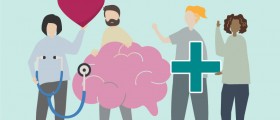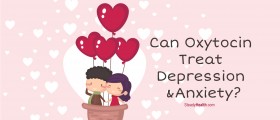
Introduction to psychotic depression and anxiety
Psychotic depression and anxiety are problems that many people face and they often lead to serious emotional instability and problems, health issues and mental problems as well.
Believe it or not, some 20 percent of people experience some form of depression in their lives and six percent suffer from some of the more serious and severe forms of this mental illness.
Causes and symptoms
Psychotic depression can be caused by many different things, including heredity, side effects from various drugs and thyroid problems.
Immunodeficiency viruses are also a risk factor involved with psychotic depression.
People who have this form of depression will often be restless, agitated, constipated and unable to sleep well.
Severe cases of anxiety usually accompany this condition as well, which will lead to mental stress and general instability, especially in situations that come with a lot of stress.
People who have psychotic depression often experience hallucinations. This is a common symptom of schizophrenia as well, but the difference with psychotic depression is that a person who is not schizophrenic will understand that they are hallucinating and that what they are seeing is not real.
If the anxiety is not that severe, it can be seen as a positive thing, especially if the person’s reactions to stressful situations seem normal.
It is important to remember that the direct cause of psychotic depression is usually not determined; however, generally the cause has something to do with genetics and the person’s brain chemistry.
People who experience serious traumas in their lives, such as the death of a close friend or family member, divorce, or anything else that is very stressful emotionally, can sometimes develop psychotic depression.
General symptoms of the condition include excessive sweating, nausea, trembling, tiredness and irritability.
Treatments
There are two basic methods for the treatment of psychotic depression. The first includes the use of medications – generally antidepressants and antipsychotics.
The drug combination and its effects are monitored closely by a physician in order to decrease the change of serious side effects, because the drugs are very potent.
Another way to deal with the problem is through the use of electroconvulsive therapy, which is administered exclusively in hospitals.
In this case, the person will have to be hospitalized and they will be given general anesthetics regularly while they are being treated. This method is usually used for people who have signs of psychomotor retardation and more serious cases in which the doctor recommends that the patients remain in the hospital and under the supervision of medical professionals at all times.

















Your thoughts on this
Loading...